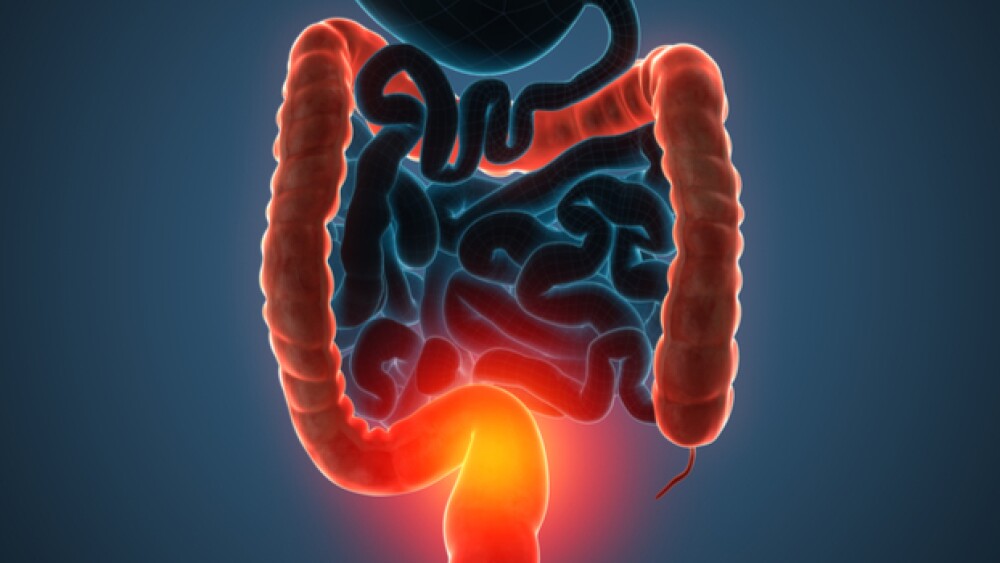At the 26th United European Gastroenterology Week (UEGW) congress in Vienna, Janssen presented three-year data from the IM-UNITI study, which demonstrates the continued efficacy of Stelara (ustekinumab) in improving clinical remission rates.
Less than two weeks after demonstrating that a single dose of Stelara can induce clinical remission and response in adult patients with moderate to severe ulcerative colitis, Janssen released data showing the drug can improve clinical remission rates in patients with moderate to severe Crohn’s disease.
At the 26th United European Gastroenterology Week (UEGW) congress in Vienna, Janssen presented three-year data from the IM-UNITI study, which demonstrates the continued efficacy of Stelara (ustekinumab) in improving clinical remission rates. The IM-UNITI data is the first to be presented from the three-year assessment of subcutaneously administered Stelara in Crohn’s disease. At week 152, overall efficacy assessments showed that 60.3 percent of randomized patients who were treated with Stelara were in clinical remission. Additionally, 68.8 percent of the randomized Stelara-treated patients had demonstrated a clinical response, Janssen said.
The IM-UNITI trial will continue another two years, the company said. Data also supported the safety profile of Stelara, Janssen noted. The latest news comes several months after Janssen revealed two-year data from the trial that showed Stelara decrease the risk of Crohn’s disease-related hospitalizations, surgery and the need for alternative biologic treatments compared to placebo.
Stelara has been approved for the treatment of Crohn’s disease, plaque psoriasis, and psoriatic arthritis. The drug brings in about $4 billion in annual sales.
William Sandborn, the director of the Inflammatory Bowel Disease Center at the University of California at San Diego and a consultant for Janssen, said the IM-UNITI data is encouraging because it shows the important role treatment with Stelara can have in helping Crohn’s patients achieve long-term clinical remission.
Clinical remission is an important goal during treatment as patients have an improved quality of life and wellbeing when they do not need to worry about a flare-up,” Sandborn said in a statement.
Key IM-UNITI study findings for different dosing regimens found that 69.5 percent of patients who received 90 mg of Stelara every eight weeks were in clinical remission. Also, 62.9 percent of patients who received the same dose level every 12 weeks were in clinical remission. The study also showed that 67.6 percent of patients who were naïve to TNF antagonist therapy and treated with Stelara were in clinical remission by week 156. Janssen said this information shows that Crohn’s patients not yet received TNF antagonist therapy, the most common class of biologic treatment for this condition, could benefit from taking Stelara. To strengthen that line of thinking, Janssen also noted that 48.4 percent of Stelara-treated patients who had previously failed or were intolerant to TNF agonists were in clinical remission.
“… we are pleased that these study findings indicate that ustekinumab can help a substantial proportion of people with moderate to severe Crohn’s disease achieve clinical remission. The IM-UNITI study will continue to explore ustekinumab for a further two years, as part of our ongoing commitment to our patients, innovation and scientific leadership,” Jaime Oliver, Janssen Therapeutic Area Lead in Immunology for Europe, Middle East and Africa, said in a statement.
While the results of the three-year study were mostly positive, Janssen reported that three deaths occurred between weeks 96 and 156. The deaths were caused by acute myocardial infarction, kidney failure and sepsis, the company said. Additionally, two cases of non-melanoma skin cancers, adenocarcinoma of the small intestine and chronic myeloid leukemia, were seen in these Stelara-treated groups.





